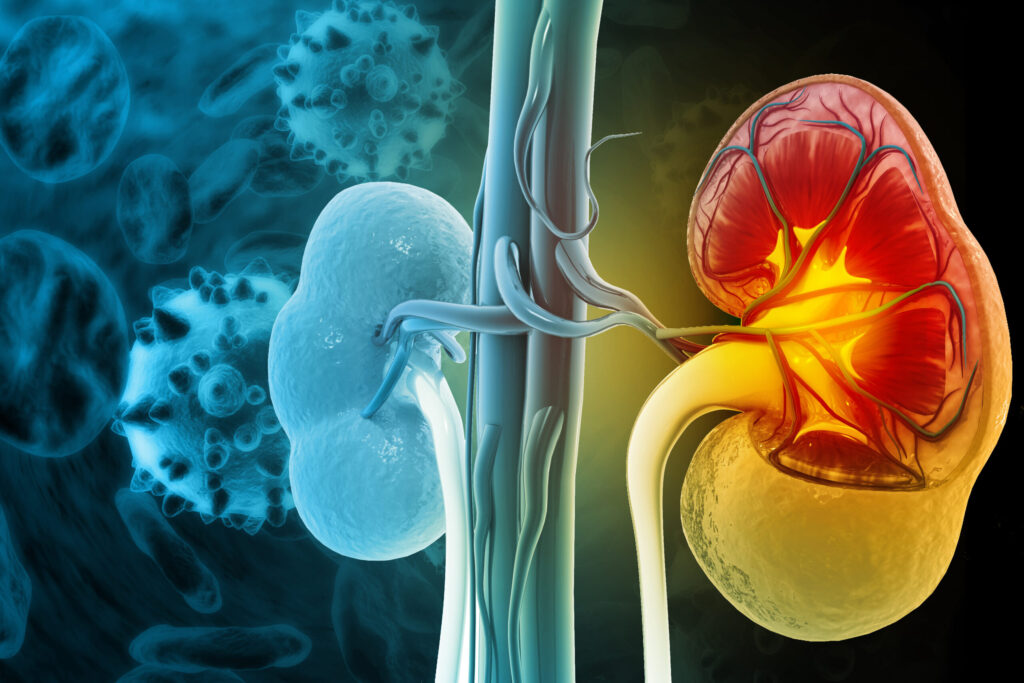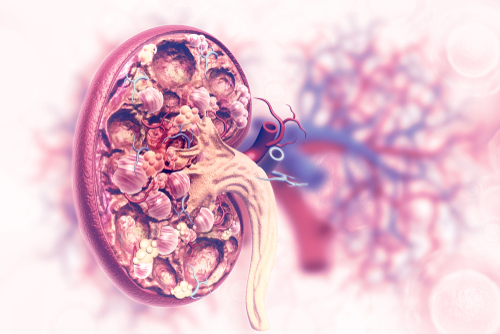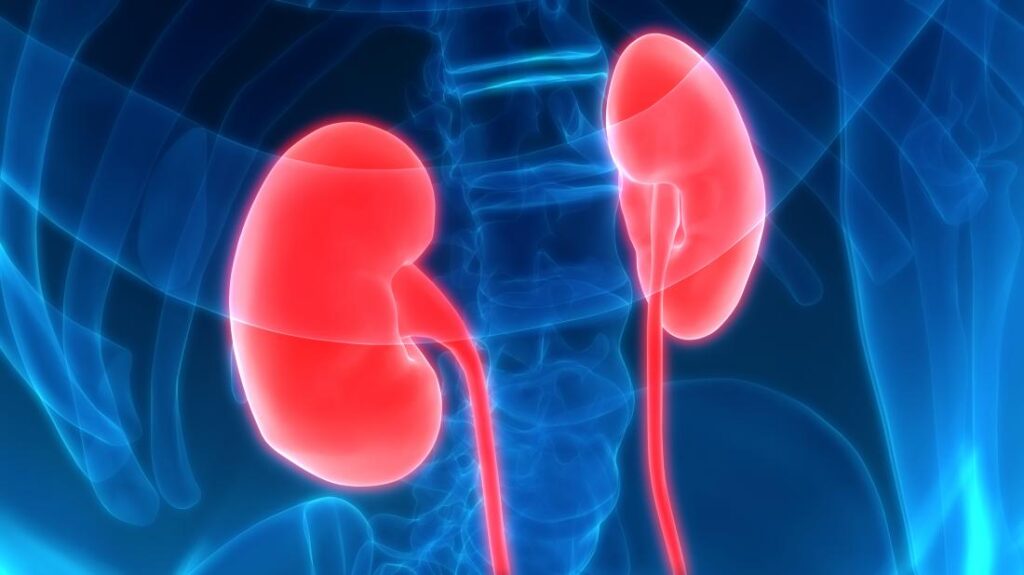
Nephritis
Nephritis refers to inflammation of the kidneys, often caused by infections, autoimmune disorders, or toxins. This condition can affect the tiny filtering units of the kidney (glomeruli), the spaces between them (interstitium), or both. When left untreated, nephritis may lead to high blood pressure, protein loss in urine, kidney damage, or even chronic kidney disease (CKD).
Depending on its cause, nephritis can appear suddenly (acute nephritis) or develop slowly over time (chronic nephritis). Prompt evaluation and treatment are essential to prevent irreversible kidney damage and preserve long-term renal health.
Signs & Symptoms of Nephritis

Swelling in the face, hands, feet, or ankles (edema)
High blood pressure (hypertension)
Foamy or frothy urine (due to protein leakage)
Blood in the urine (hematuria) – pink, red, or cola-colored urine
Decreased urine output
Fatigue, weakness, or malaise
Nausea, vomiting, or loss of appetite (in severe cases)
Shortness of breath due to fluid retention
Diagnostic Procedures
Dr. Upal Sengupta follows a thorough, evidence-based approach to diagnose nephritis and assess its impact on kidney function:
Urine Analysis (Routine & Microscopy): Detects blood, protein, or inflammatory cells.
Urine Protein Quantification: Measures the amount of protein loss in urine.
Blood Tests (Renal Function Tests): Evaluates creatinine, urea, and electrolyte levels to check kidney performance.
Immunological Tests: Helps identify autoimmune causes such as lupus nephritis or IgA nephropathy.
Ultrasound of Kidneys: Checks kidney size, structure, and rule out obstruction.
Kidney Biopsy (if needed): Provides a definitive diagnosis by examining kidney tissue under a microscope.
Treatment Options for Nephritis

Medication:
Corticosteroids and immunosuppressants for autoimmune-related nephritis
Blood pressure medications (ACE inhibitors/ARBs) to protect kidney function
Antibiotics for infection-related nephritis
Lifestyle Modifications:
Salt and fluid restriction to control swelling and blood pressure
Balanced kidney-friendly diet under medical guidance
Regular monitoring of weight, urine output, and blood pressure
Supportive Care:
Dialysis in severe or advanced cases where kidney function is significantly reduced
Long-term follow-up to monitor kidney health and prevent progression to CKD
Why Choose Dr. Upal Sengupta for Nephritis Care?
Specialist in Kidney & Urinary Disorders: Expertise in managing both acute and chronic forms of nephritis.
Advanced Diagnostic Approach: Uses modern lab tests, imaging, and biopsy for accurate diagnosis.
Personalized Treatment Plans: Tailored to the underlying cause and patient’s overall health.
Focus on Kidney Preservation: Emphasis on slowing disease progression and preventing complications.
Patient-Centered Care: Provides clear communication, lifestyle counseling, and long-term support for kidney wellness.